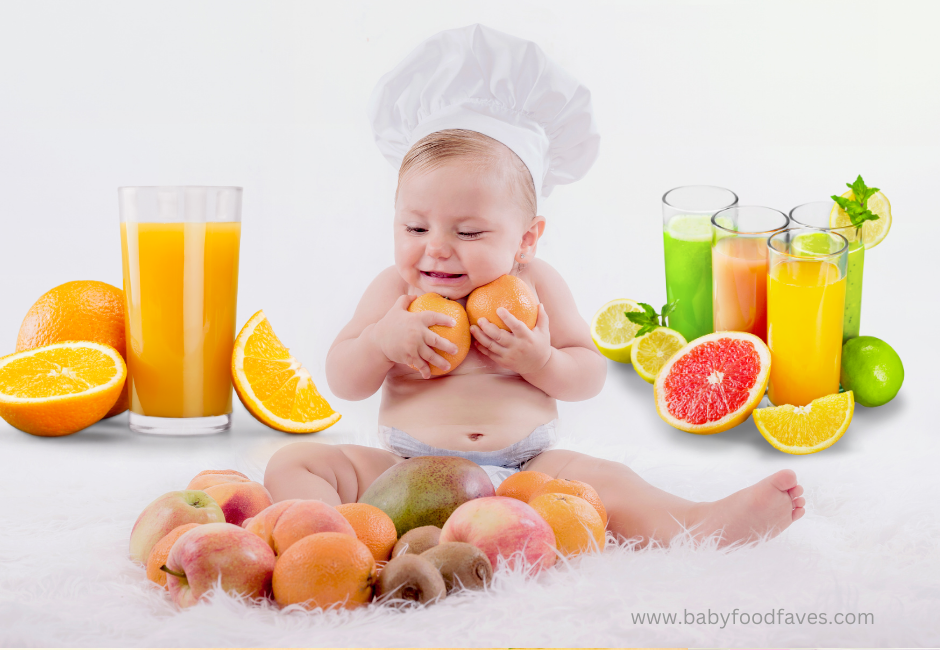
Offering Juice to babies is a common concern among parents.
Many parents wonder when it’s safe to introduce juice to their baby. Most experts suggest waiting until after the first birthday. Personally, I believe the longer you wait, the better. Giving juice too early can lead to excessive sugar intake, increase the risk of obesity, and may cause your baby to reject healthier drinks options later on. I would suggest waiting until at least 2 years, especially with store-bought juices. There is nothing nutritive in these drinks.
Eventually, it’s inevitable that your baby will want to try juice at some point. Their curiosity grows, especially when they see friends drinking it or watch you take a sip. In this article, I’ve outlined important things to keep in mind when giving juice and how to introduce it safely into your baby’s diet.
Introducing Juice for Babies
As a parent, it’s natural to wonder when and how to introduce juice to your baby. Juice isn’t necessary for babies, especially in the first year. The American Academy of Pediatrics (AAP) advises against giving juice to babies under 12 months. This is because breast milk or formula provides all the necessary nutrients for a baby’s growth and development. Let’s explore the essentials of giving juice to babies and what important things you should know.
Key Takeaways
Juice should not be introduced to babies before 12 months of age to prevent potential health risks and ensure proper nutrition from breast milk or formula.
When introducing juice for babies after one year, it is essential to dilute it with water. Use appropriate cups, and serve pasteurized options while limiting intake to prevent excessive sugar consumption.
Monitor for allergic reactions when introducing juice for babies. Also, you should consider healthier alternatives like whole fruits or flavored water to support balanced nutrition.
When Can Babies Start Drinking Juice?
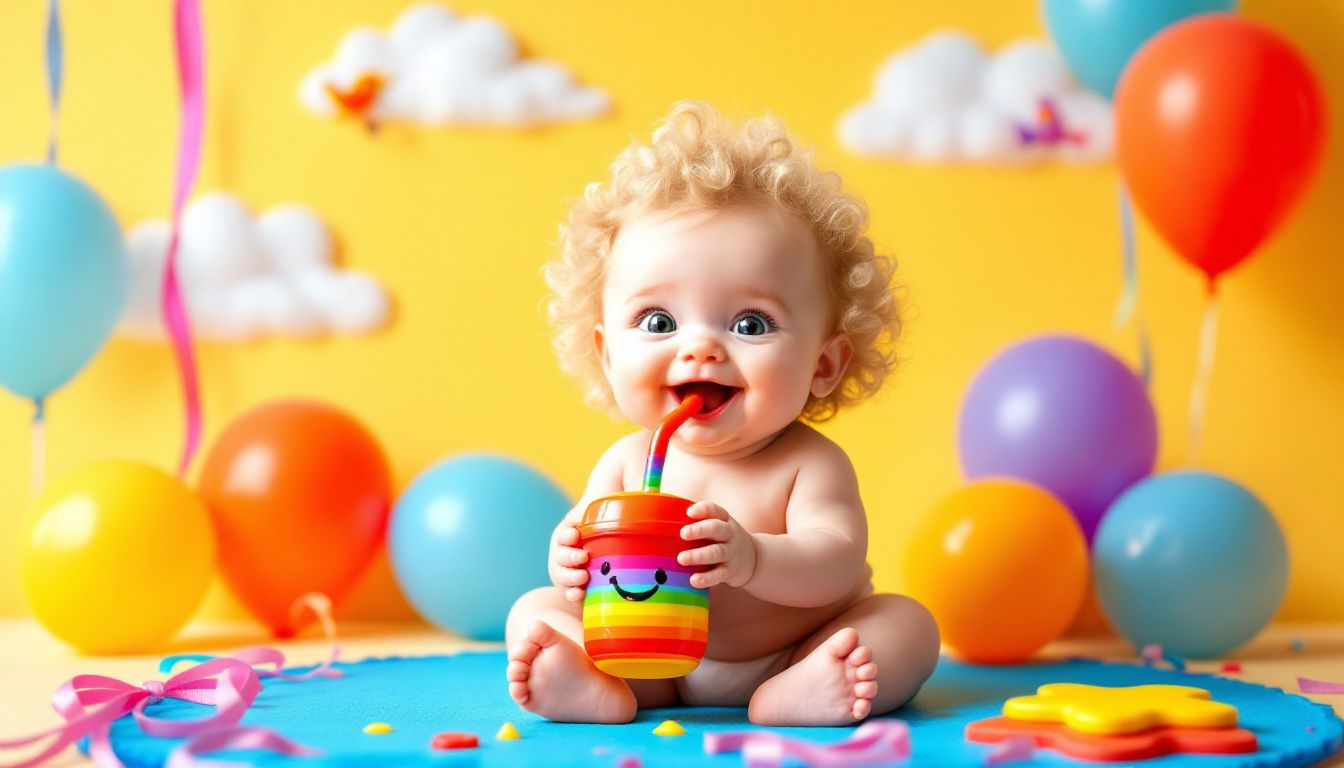
Juice isn’t a healthy drink, not for adults but especially for children. Your baby shouldn’t be introduced to juice during the first year, it’s as simple as that. The reason for waiting until after 12 months is that juice can interfere with their intake of breast milk or formula, which are crucial for both nutrition and hydration. Giving juice too early can also lead to digestive issues and affect how well your baby absorbs important nutrients. During the first year, breast milk or formula should be the main source of nutrition, as it provides the essential nutrients your baby needs.
Once your baby turns one, you can gradually start adding juice to their diet if you choose to, but it’s important to monitor how they respond. Juice can be a nice addition to meals, but it shouldn’t replace the essential nutrients from breast milk or formula.
Why Babies Shouldn’t Drink Juice Before 1 Year
The American Academy of Pediatrics advises against giving fruit juice to babies under one year old because of the health risks. Fruit juice is high in sugar, which can lead to obesity, health problems, and tooth decay in young children.
Some fruit juices can also contain harmful metals like lead, which are especially dangerous for babies, as their bodies are still developing. It’s best to avoid giving juice to babies under 12 months to protect them from these risks.
Breast Milk vs. Juice: What’s the Difference?
While both breast milk and juice can be part part of a baby’s diet, they serve very different purposes. As a nutrient-rich fluid, breast milk offers essential vitamins, minerals, and antibodies to protect babies from infections and diseases. On the other hand, juice is a sugary drink that lacks the nutritional benefits of breast milk. While juice may seem like a convenient way to provide your baby with essential vitamins and minerals, it’s essential to remember that breast milk is the best source of nutrition for babies under 12 months old.
How to Introduce Juice to Your Baby
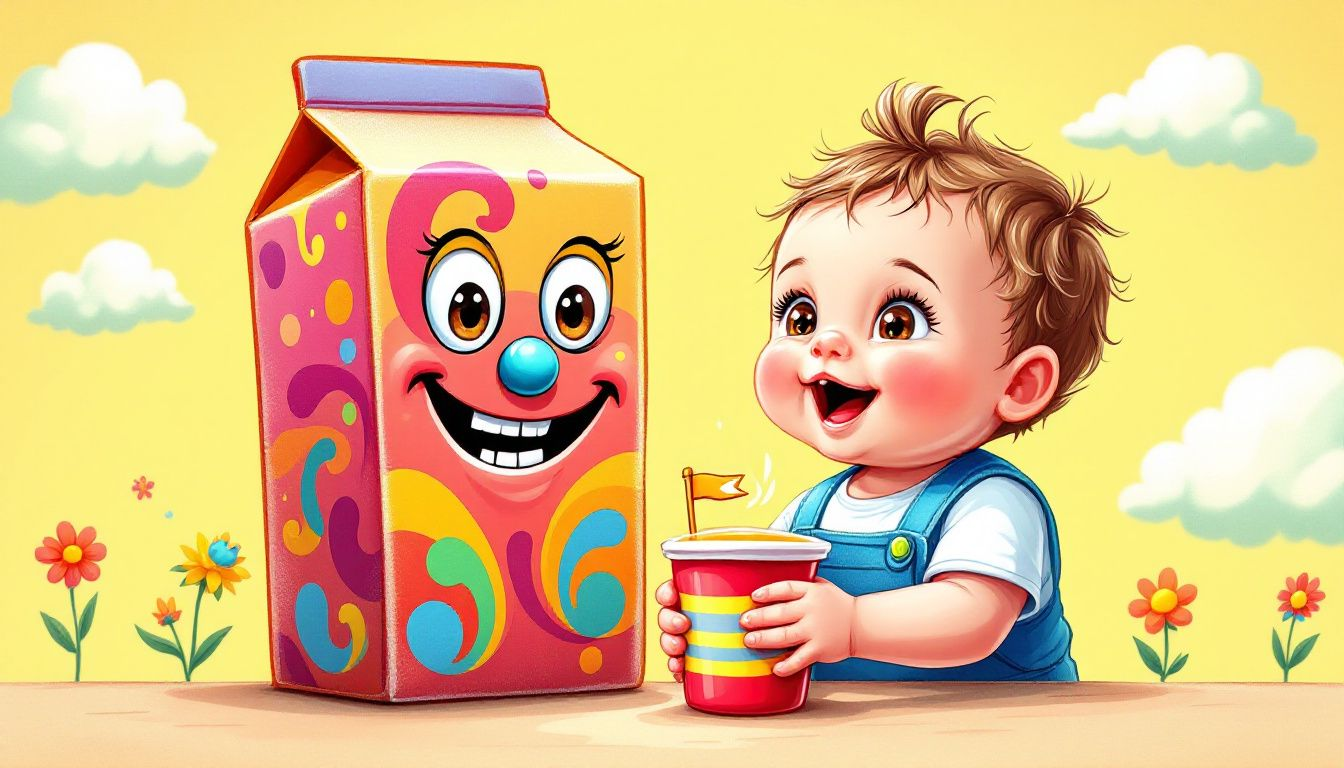
If your baby is over 12 months old and you’ve decided to give them their first sip of juice, I recommend diluting it with water at first. By diluting it, you not only decrease its sugar levels, but also help your child get accustomed to this new flavor more gently. Initiate this process by blending one part of juice with ten parts of water and modify the proportions according to what suits your baby’s palate.
It is advisable for parents or caregivers to serve the diluted juice using a sippy cup, open cup, or straw cup rather than in a bottle. This practice promotes better drinking habits and plays a role in safeguarding against tooth decay. Be mindful not to let children sip on bottles or sippy cups filled with juice for too long as this habit may lead them toward consuming excessive amounts, which could harm their teeth.
Another healthy option, besides diluting juice with water, is offering freshly squeezed, pasteurized juice with pulp, as it adds extra nutrients and fiber important for healthy growth. These two simple tips can have a big impact on your baby’s overall health and help encourage good eating habits from the beginning.
Safe Types of Juice for Babies
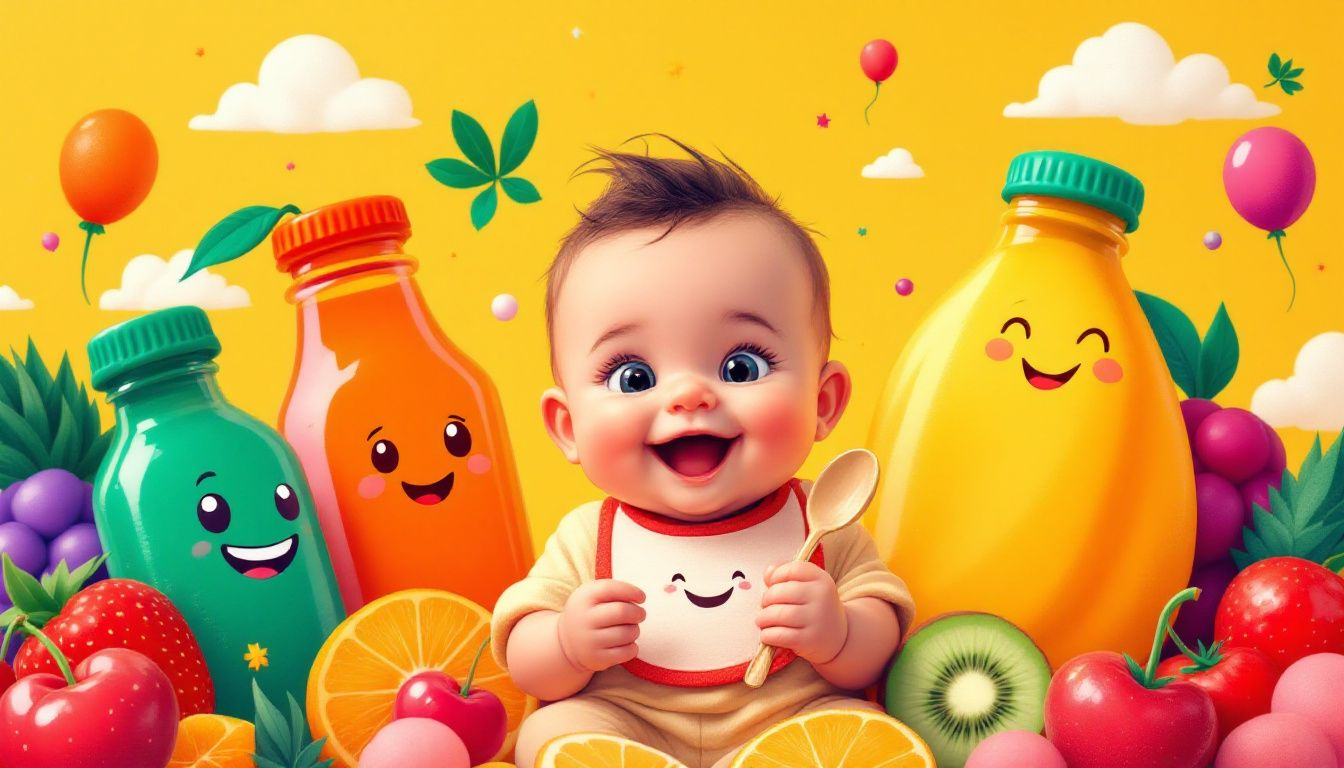
It’s important to make the right choices when introducing fruit juice to your baby, taking into account both the right age and how you offer it. Here are some safe types of juice for babies:
100% Fruit Juice (Pasteurized): Always opt for juice that is 100% pure fruit juice with no added sugars or preservatives. Pasteurized juice is the safest choice since it helps eliminate harmful bacteria.
Apple Juice: This is one of the most common and safest juices for babies. Choose 100% pure apple juice and serve it in moderation, diluted with water to reduce sugar content.
Pear Juice: Like apple juice, pear juice is gentle on the digestive system and is less likely to cause stomach upset. It’s best served diluted.
Prune Juice: Prune juice is great for babies experiencing constipation. It can be introduced in small amounts, diluted with water.
Carrot Juice for Babies: Once your baby is over one year old, you can introduce fresh, pasteurized carrot juice. It’s packed with vitamins but should be served in moderation due to its natural sugar content.
Vegetable-Fruit Blends: Smoothies made from a mix of fruits and vegetables, like spinach, carrots, and apple, can offer a nutritious and low-sugar alternative. These can be a good source of vitamins and minerals.
Important Notes:
Dilution: Always dilute juice with water to reduce sugar intake. This is especially important for younger toddlers.
Limit Quantity: Even healthy juices for babies should be limited to no more than 4 ounces per day for babies and toddlers under 3 years old.
Avoid Citrus Juices for Babies: While not harmful in small amounts, citrus juices like orange juice may irritate sensitive stomachs and can be acidic.
No Homemade Juices for Babies: Avoid homemade juices for babies unless they are pasteurized, as they can contain harmful bacteria.
While it may be tempting to introduce your baby to a variety of juice flavors, whole fruits are still the better choice because they offer more important nutrients and fiber. For more guidance on introducing fruits to your baby’s diet, take a look at this article on how to start giving fruits to babies. When picking juice for babies, try to select those that closely resemble the original fruit for the best nutritional benefits.
How Much Juice Can Babies Have?
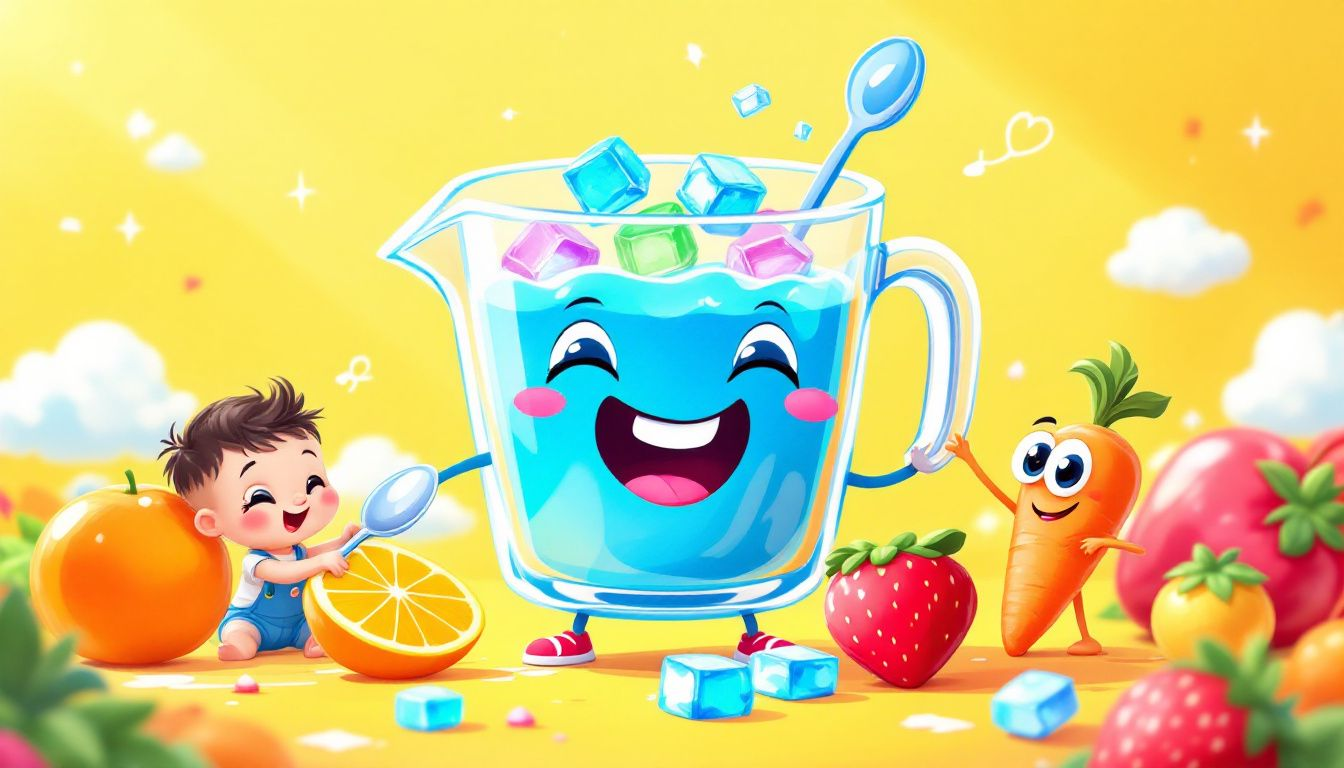
When you start offering juice to your baby, it’s important to keep their consumption in check. Babies around one year old should not drink more than 4 ounces (≈100 ml) of juice per day. Following this recommendation helps prevent high sugar intake and ensures a nutritious diet.
For toddlers between 1 and 3 years old, the daily limit should still be 4 ounces. Children aged 4 to 6 years should have no more than 6 ounces (≈200 ml) per day. Kids aged 7 to 18 years should stick to no more than 8 ounces (≈250 ml) daily.
It’s best to serve juice with meals rather than as a standalone drink. This will help manage sugar intake and promote better eating habits. By following these guidelines, you can make sure your baby enjoys juice in a healthy way without overindulging in sugar.
Potential Allergies and Reactions to Juice for Babies
When you begin introducing your baby to new foods or beverages, it’s critical to watch out for possible allergic reactions. Hives, vomiting, and gastrointestinal discomfort are among the typical symptoms of an allergy triggered by juice consumption. Minor reactions can also include mouth itchiness and slight facial puffing.
In more extreme instances, infants might go through anaphylaxis—a rapid and potentially fatal allergic reaction following contact with a triggering substance. Signs of anaphylaxis include severe difficulties in breathing, intense swelling around the body parts, as well as a precipitous decline in blood pressure levels. Should your infant exhibit any signs indicative of a serious allergic episode, it is imperative that you obtain urgent medical attention.
It’s advisable to introduce novel drinks and edibles slowly to your baby while keeping a vigilant eye for any negative indications or symptoms. This methodical approach facilitates prompt identification and effective management of allergies that may arise from their diet.
Alternatives to Juice for Babies
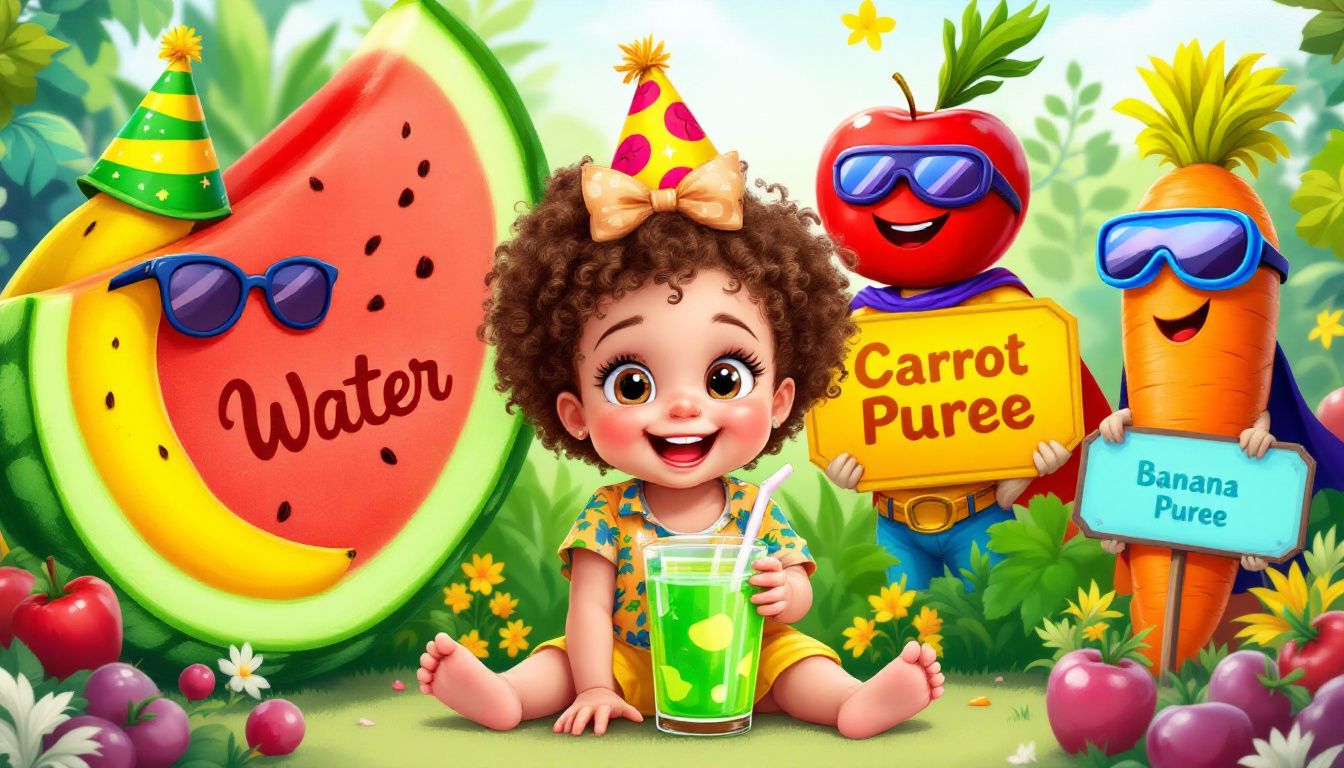
Incorporating solid foods into your baby’s diet after their first birthday is essential, and whole fruits are a superior choice over juice. Whole fruits provide the necessary fiber and nutrients that juices lack. By offering whole fruit to your baby, you’re encouraging good eating habits and ensuring they receive all the nutritional benefits.
For hydration without the added sugars often found in juices, flavored water is a great substitute. Infusing water with slices of fruit and aromatic herbs can naturally enhance its flavor.
Smoothies can also be a wonderful addition to your baby’s diet. Blending whole fruits with vegetables like spinach, carrots, or sweet potato can provide even more nutrients, offering a tasty and nutritious option. Just be mindful to use a small amount of natural sweeteners like fruit to keep it healthy.
As you continue nurturing your baby’s growth and health, diversifying their intake with these nutritious drinks is key. These alternatives help create a balanced, healthy diet that supports your little one’s development.
Using Juice for Medical Reasons
Under the supervision of a healthcare provider, juice may occasionally be recommended for medicinal purposes. Juices such as those made from apples and pears have sorbitol, which aids in alleviating constipation. For infants over three months old, prune juice can also provide relief.
When a baby is unwell and needs to maintain hydration levels, juice might be beneficial. It’s essential to seek advice from a healthcare provider prior to employing juice for medical reasons to confirm that it aligns with your baby’s individual health requirements.
Administering juice for health-related issues should be done with care and restraint. Safeguarding your baby’s overall health takes precedence.
Summary
In my opinion, juice for babies should be avoided as much as possible. While it might seem like a fun treat, it’s just not necessary for your baby’s diet, especially in the first couple of years. Breast milk or formula provides everything they need for proper growth and development. Even after their first birthday, juice isn’t essential, and it can easily lead to too much sugar and unhealthy habits down the road. If you do decide to introduce juice, it’s best to dilute it and serve it in moderation. But honestly, whole fruits and water are much better choices for your baby’s health. Keeping juice to a minimum will help your little one develop healthy, balanced eating habits that will last a lifetime.
Frequently Asked Questions
Q1: When can I introduce juice to my baby?
A: You should introduce juice to your baby after they turn one year old. It’s important for them to receive essential nutrients from breast milk or formula during their first year. This timing helps ensure their healthy development.
Q2: How much juice can my one-year-old have?
A: One-year-olds should have a maximum of 4 ounces of juice per day. Limiting their intake will help ensure they receive sufficient nutrition from whole fruits and other foods.
Q3: What types of juice are safe for my baby?
A: Fresh pasteurized or reconstituted 100% fruit juice without added sugar is safe for babies over one year old. It is essential to ensure that the juice is suitable for their diet at this age.
Q4: What are some alternatives to juice for babies?
A: Flavored water and whole fruits are healthier alternatives to juice for your baby, as they provide essential nutrients and fiber. These options can help establish better dietary habits without the added sugars found in juice.
Q5: Can juice be used for medical reasons for my baby?
A: Juice may serve a therapeutic role for infants, especially in treating constipation and assisting with fluid intake. Its use should be under the supervision of a healthcare provider. Before using juice to address medical issues in babies, it is imperative to seek advice from your child’s pediatrician.
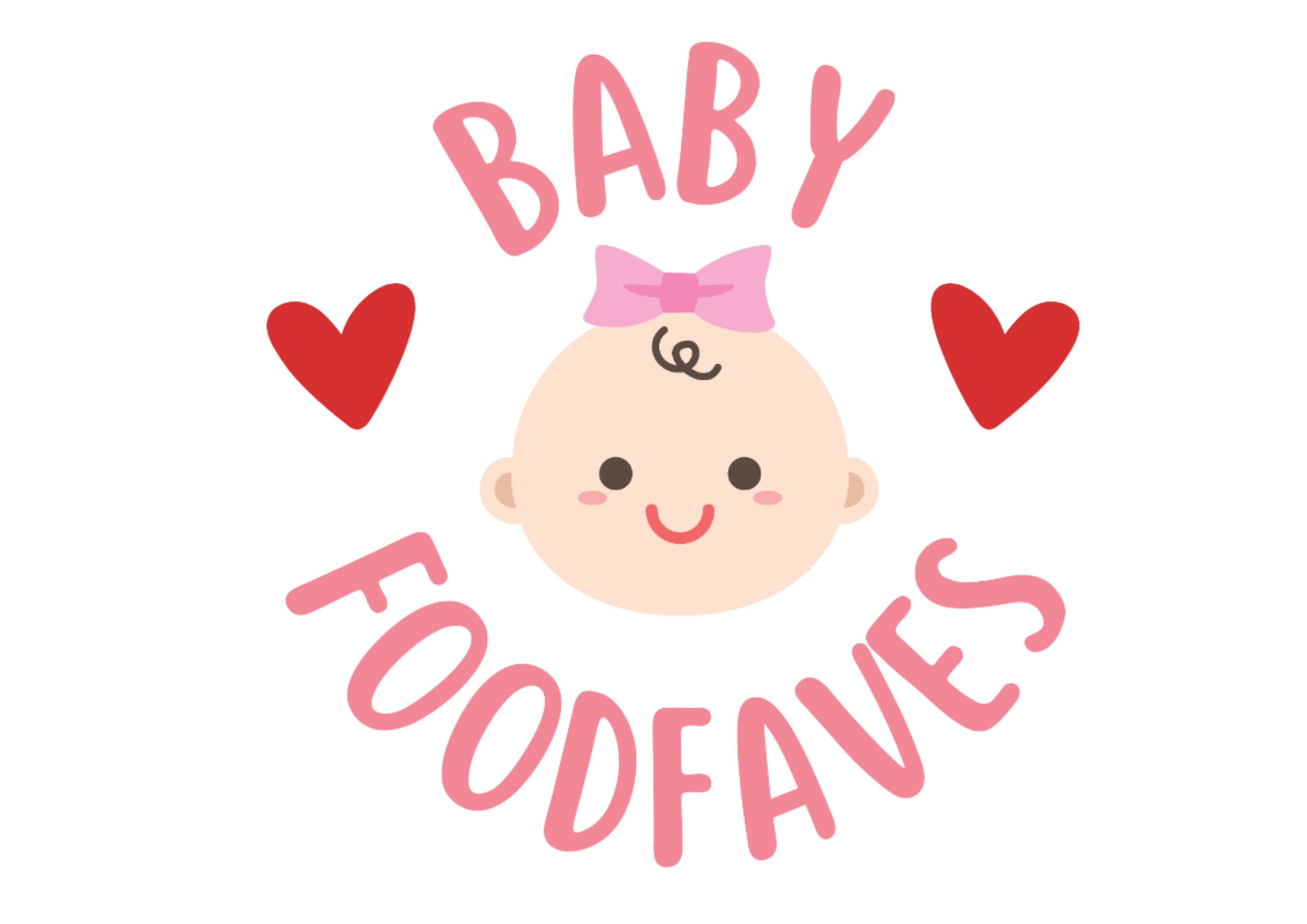


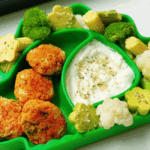
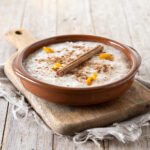

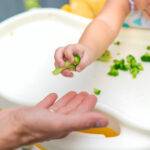



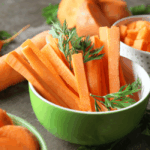
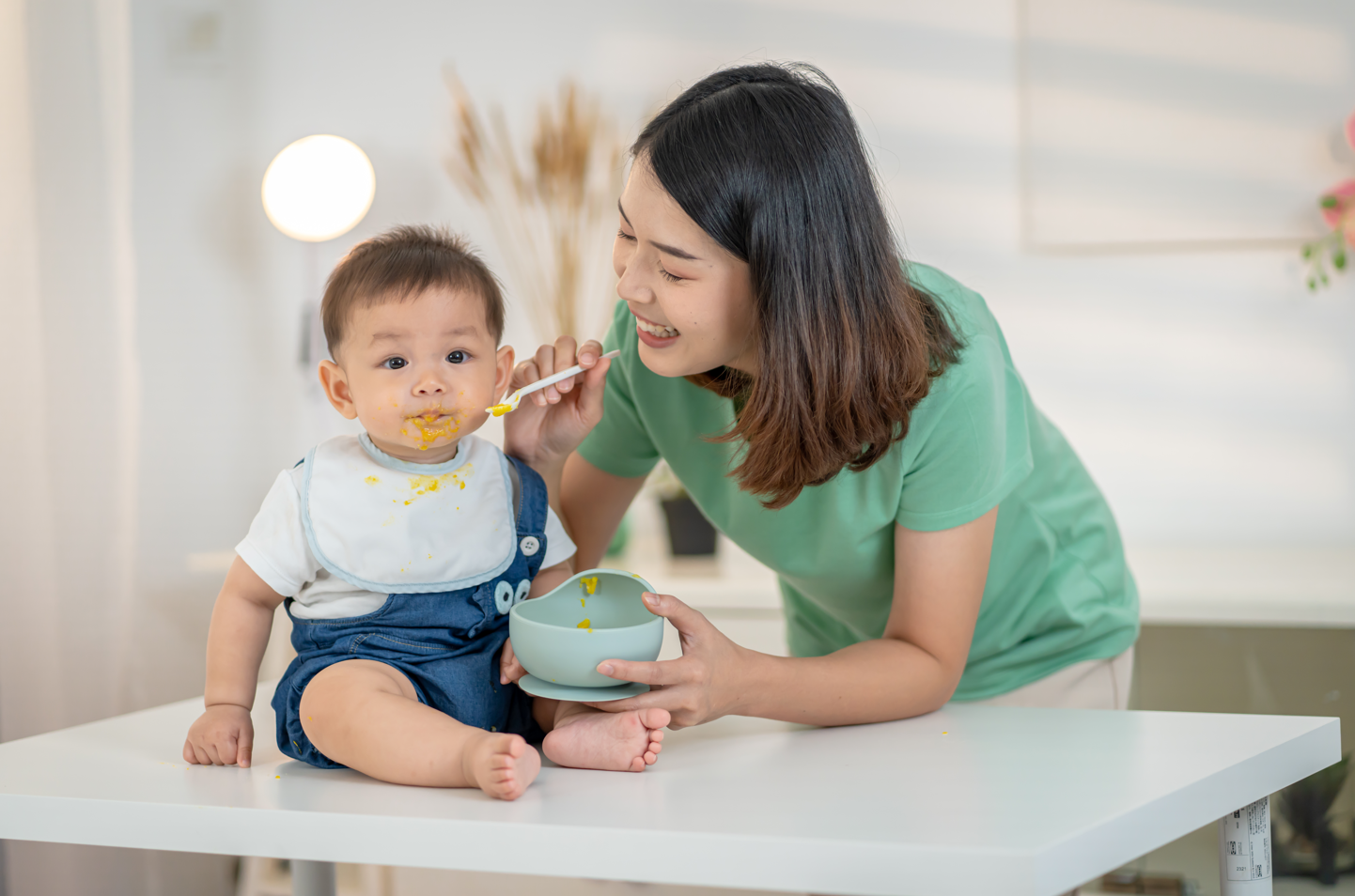

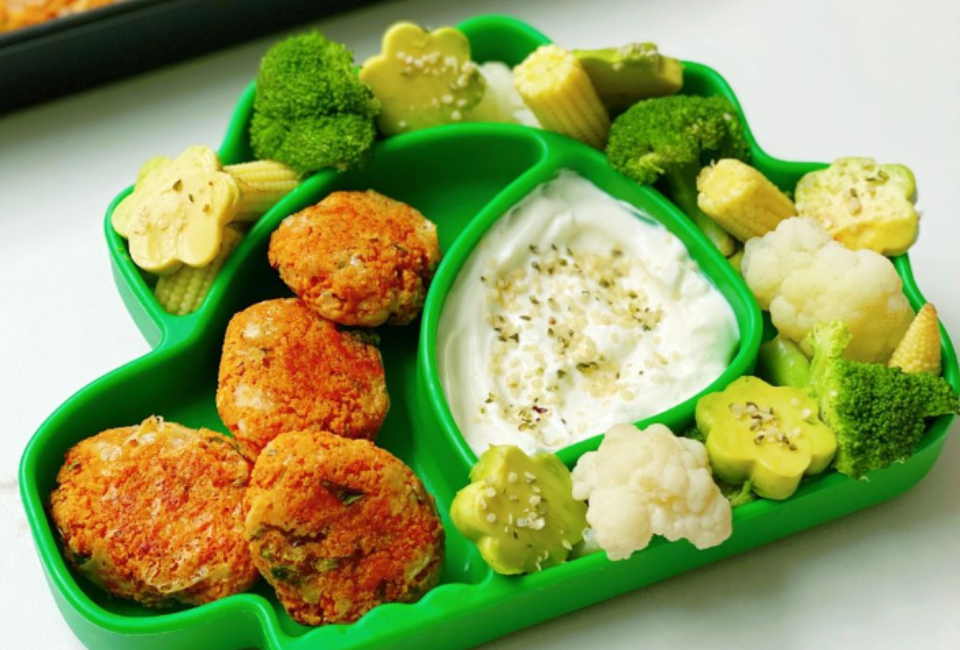
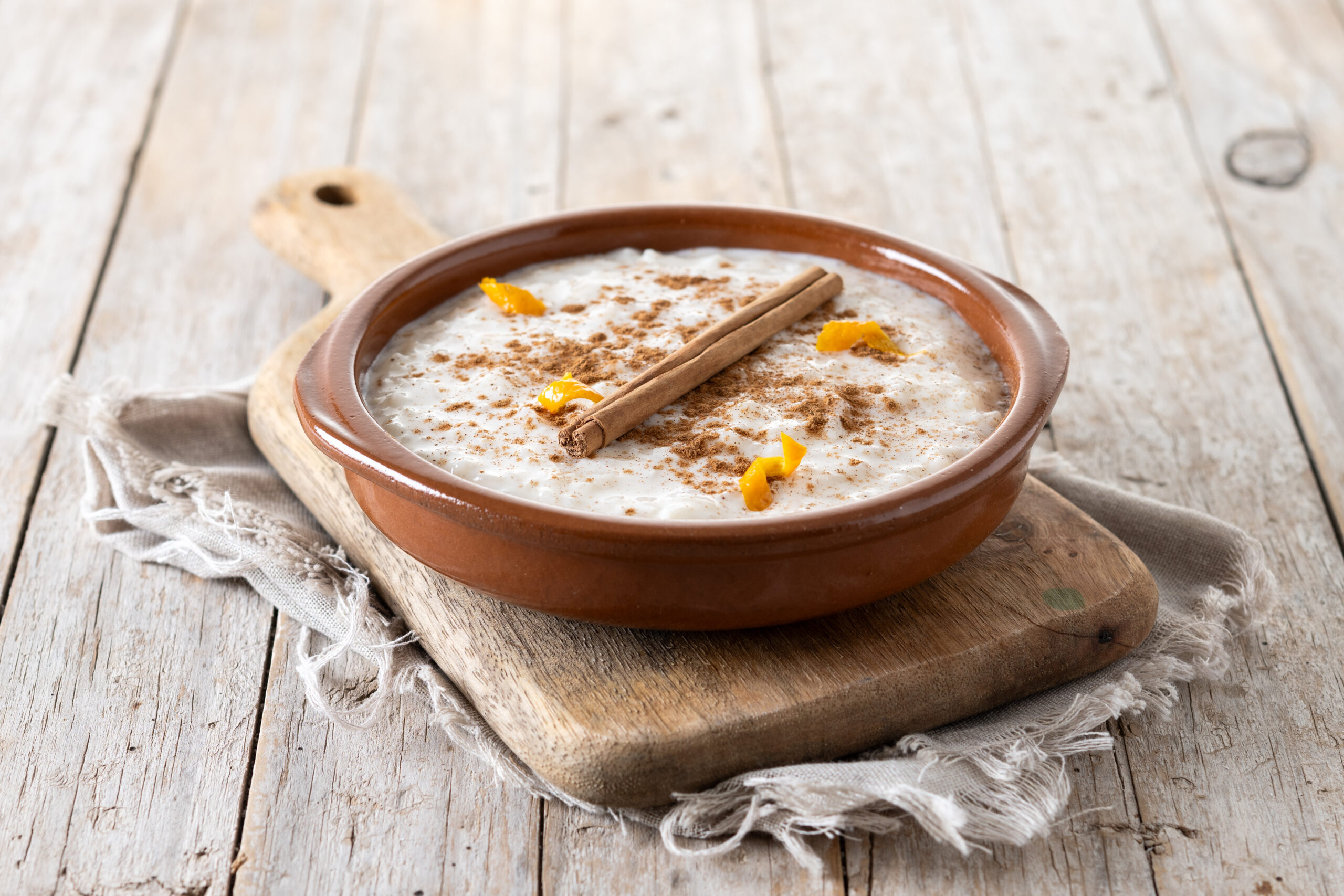
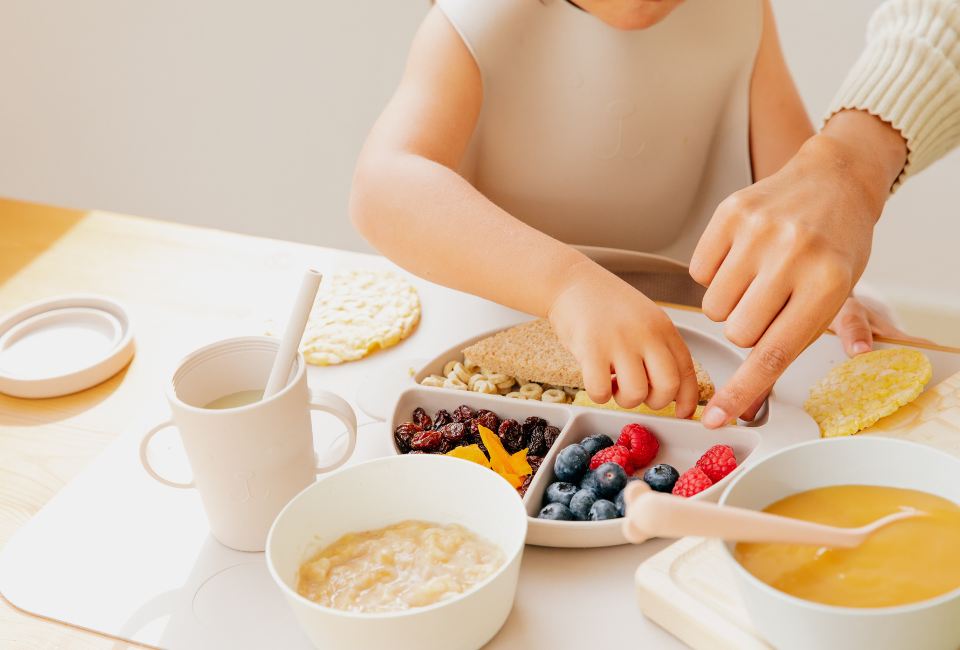
Leave a Reply